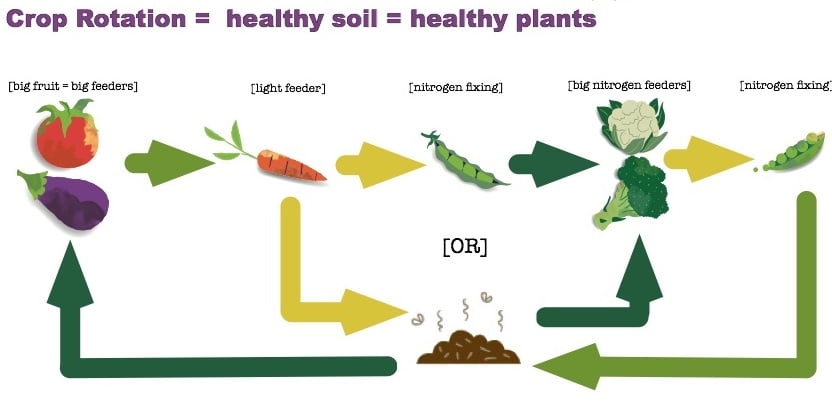Crop rotation
Crop rotation is one of the oldest and most effective cultural control strategies. It means the planned order of specific crops planted on the same field. It also means that the succeeding crop belongs to a different family than the previous one. The planned rotation may vary from 2 or 3 year or longer period.

Some insect pests and disease-causing organisms are hosts’ specific. For example, rice stem borer feeds mostly on rice. If you don’t rotate rice with other crops belonging to a different family, the problem continues as food is always available to the pest. However, if you plant legume as the next crop, then corn, then beans, then bulbs, the insect pest will likely die due to absence of food.
Advantages of crop rotation
- Prevents soil depletion
- Maintains soil fertility
- Reduces soil erosion
- Controls insect/mite pests. Crop rotation as a means to control to insect pests is most effective when the pests are present before the crop is planted have no wide range of host crops; attack only annual/biennial crops; and do not have the ability to fly from one field to another.
- Reduces reliance on synthetic chemicals
- Reduces the pests’ build-up
- Prevents diseases
- Helps control weeds
Useful tips in planning crop rotation
- Know the family where your crops belong to make sure that you plant on the next cropping a crop that belongs to a different family than the previous one.
- Table 1. Crop groups r
| Family | Common names |
| Allium | Chive, garlic, leek, onion, shallot |
| Cucurbit (Gourd family) | Bitter gourd, bottle gourd, chayote cucumber, ivy gourd, luffa gourd, melons pumpkins, snake gourd, squash, wax gourd |
| Crucifer (Brassica) | Bok choy (petchay), broccoli, Brussels sprouts, cabbage, Chinese cabbage, cauliflower, collard, kale, kohlrabi, mustard, radish, turnip, watercress |
| Legume | Common beans, black bean, broad bean (Fava), clover, cowpea, garbanzo, hyacinth bean, kidney bean, Lima bean, lintel, mungbean, peanut, pigeon pea, pinto bean, runner bean, snap pea, snow pea, soybean, string bean, white bean |
| Aster | Lettuce, artichoke |
| Solanaceous (Nightshade family) | Potato, tomato, pepper, eggplant |
| Grains and cereals | Corn, rice, sorghum, wheat, oat, barley, millet |
| Carrot family | Carrot, celery, dill, parsnip, parsley |
| Root crops | Cassava, sweet potato, taro, yam, water chestnut |
| Mallow family | Cotton, okra |
- Make a list of the crops you want to grow by also taken into consideration the market’s demand of your produce. For example, plant leafy vegetable on the first cropping season, next fruit vegetables, then root crops, then legumes, then small grains.
- Grow legumes before grains or cereals.
- Practice green manuring.
- Always keep farm records.
- Source:








